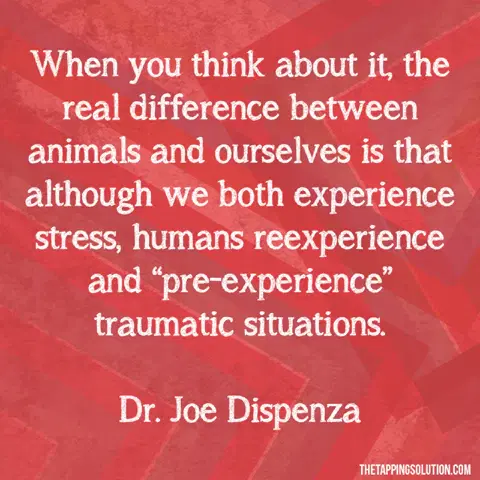What We Can Learn from Animals
Dr Joe Dispenza | 04 February 2015
“When you think about it, the real difference between animals and ourselves is that although we both experience stress, humans re-experience and ‘pre-experience’ traumatic situations.”
The above quote from my first book, Evolve Your Brain, sparked a healthy conversation on my Facebook page recently. As promised, I’m going to discuss this material in an effort to provide a little clarity and understanding.
Let me start by saying that the intent of this passage is to illustrate our ability to create reality with our minds. The human neocortex is an amazing instrument that helps us learn and remember. This is a great ability, most of the time. Our higher brain functions allow us to make new discoveries and recall past events.
The downside of our enlarged brains is that we can get stuck in the past. Our large database of information is a warehouse of memories replete with feelings and emotions. This is why we can remember with vivid detail when we got fired from that job. We can paint a mental picture of that moment with such intensity so as to produce the same brain chemistry, and when that happens we are living in the past.
Maybe you’ve never been fired, but surely you’ve had a traumatic experience in your life. What happens to you when that memory starts floating to the surface? Do you notice a change in mood? Do certain parts of your body start to tense up? This is your body’s stress response gearing up for action. You’ve conditioned your body to respond to this event in a certain way and it’s doing what it’s been taught, even when the stressor isn’t physically present.
Animals also have a stress response. However, their brains have a much smaller neocortex which limits memory. For instance, a deer has a split second to decide if it’s going to run from a predator. Once the decision is made and the danger has passed the deer returns to homeostasis. The deer doesn’t stay up all night worrying for hours on end about when the predator will return or obsess about how it narrowly escaped death.
If you’re a pet owner, you’ve probably seen something similar with your cat or dog when it’s time to eat. Your pet may meow or bark until the food arrives, but once it does the animal starts to eat and is so busy enjoying the present that it’s not thinking about where or when the next meal will come.
We can take a lesson from animals. The ability to move on is something people struggle with. Not only do we fixate on past events, we also project our expectations onto the future. Let’s use the example of a first date. You’ve been spurned before but a good friend sets you up with this person, so you decide to give it a try. You agree to meet at a restaurant and on the drive over you think about your previous disastrous relationships which bring up negative thoughts and emotions. Pretty soon you’re thinking about all the ways this date will be a disaster and you’re not surprised when it ends up going exactly as you thought! And of course you really believe you had nothing to do with the outcome.
This isn’t to say that thinking about the past or the future is a bad idea. What’s important is how we engage with ourselves. We need to use our capacity to learn and remember in different ways. When we can’t think greater than how we feel then it’s time to change. Change starts with overcoming old habits, behaviors and emotions that cause us to live in a past which invariably becomes our future. In a sense we need to become more like dogs or cats and embrace possibility without stressing about the past or the future, and just be content in the present moment!

Comments